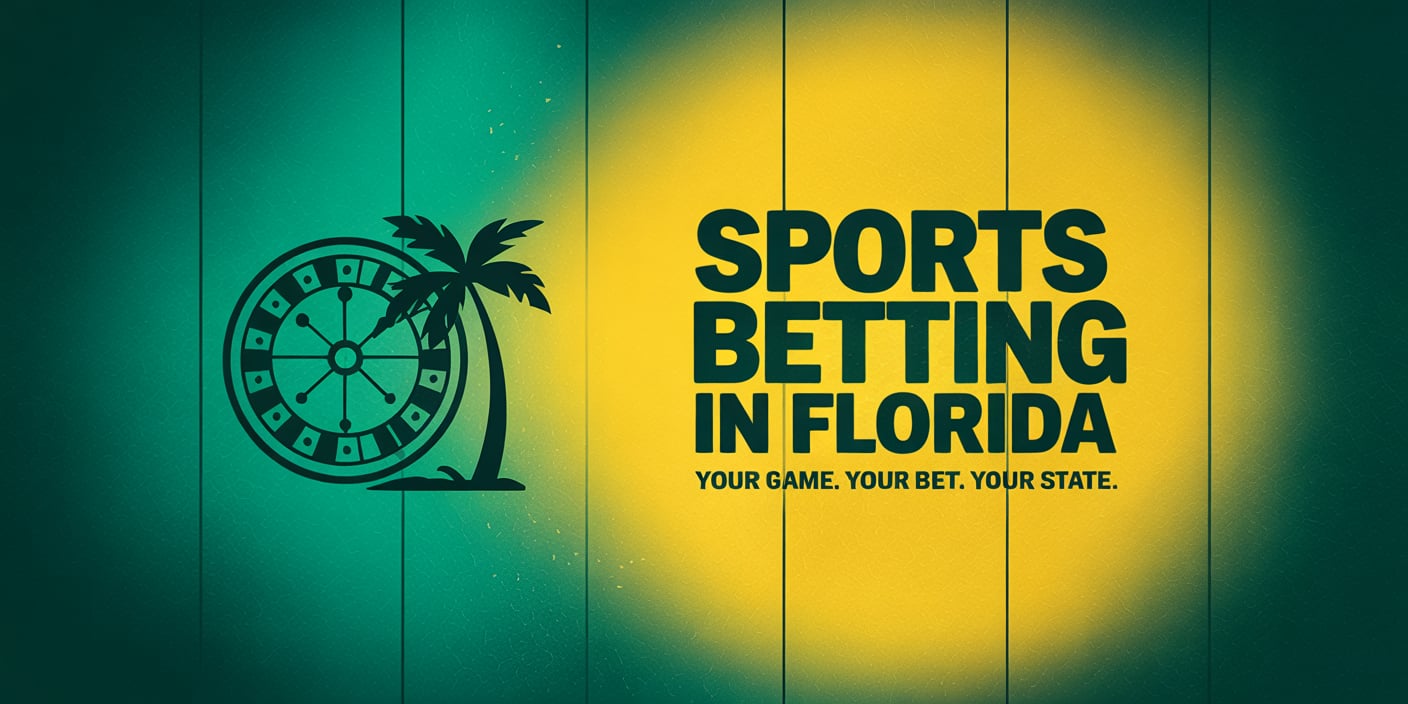Florida is a state of wide-ranging gaming opportunity, ranging from racetracks to jai alai frontons to casinos to several professional sports franchises and high-level college football and basketball. But sports betting in Florida is illegal and there's little to suggest it will be otherwise any time in the near future.
There has been a significant source of opposition in the form of tribal casinos within the state that are vehemently opposed to introducing sports betting into the state. While there is no shortage of gaming houses, sports betting legalization in the Sunshine State still has quite a few barriers to break through. Even after the U.S. Supreme Court struck down the federal ban on sports betting, giving states the authority to make their own choices,
Florida hasn't budged. Recent discussions were held between Florida's government and the state's governing tribe, the Seminoles, which was in the right direction, although no deal has been reached.
There is plenty of gambling available in Florida, but that hasn't translated to legalizing sports betting. Over half of the states have legalized it or are considering legislation to legalize it, but Florida isn't anywhere close to that stage yet. There is some momentum toward legalization, but there's still a strong resistance. Professional sports leagues have begun aligning themselves with leading gambling operators to boost revenues and are poised to enter the state of Florida. There are a number of pro teams in the Sunshine State, so there would be an awful lot of betting activity. Casino gambling within the state is regulated by the Seminole Tribe and is doing everything within their power to prevent the sports betting industry from taking a share of their revenue.
Quick Overview: Sports Betting in Florida
Status Summary: A bill was introduced in the Florida Senate last spring, but nothing significant came of it. Already, voters had rejected a referendum to legalize sports betting, and now the Seminole Tribe is also battling against it. A lot of convincing will be required to make any progress.
Where to Bet: Doubtful whether new retail books will be licensed by the Seminoles, so their properties are the next most likely location. The Seminoles currently have seven, and the Miccosukee Tribe has a single casino. For the meantime, the top way to bet on sports remains online sportsbooks offshore.
Teams Overview: Florida has a large number of professional sports teams and rich athletic history at top-tier colleges. Football and basketball are the two most popular sports in the state, while baseball has not gained as much traction. There are many well-funded franchises that would create heavy sports betting traffic if legalization occurs.
Legal Landscape
Florida is one of several states in which the underlying debate about legalizing sports betting is a fight between tribal casino operators and state legislators. Sports betting is opposed by the Seminole Tribe, concerned that any expansion of gaming would hurt their on-land operations. Florida Governor Ron DeSantis met with Florida gaming industry players as well as key Seminole leaders, Chairman Marcellus Osceola and Seminole Gaming President Jim Allen. They discussed making gambling and sports betting legal, but reached no agreement. Pari-mutuel house owner Barbara Havenick noted that it was the first time so large of a group was convened, demonstrating a previously unheard level of cooperation from the industry.
The Seminole Tribe opposes not only expanded gaming, including sports betting, but also mobile gaming. This is a major hurdle, as the majority of sports betting in other states is done through mobile platforms. For example, in one state's first year of legalization, 80% of the bets were on mobile. Tribes across the U.S. naturally resist mobile betting because they perceive that it will lead to more extensive mobile gambling, such as online casino games, which will take away from business at casinos on land. This despite the fact that tribal casinos may have sportsbooks and engage in gaming revenue—a big possibility, especially in a large, populated state like Florida.
Even more opposition has come from groups like No Casinos in Florida. They penned a letter to the governor in which they made the argument that sports betting would be casino gambling under Florida law. Because of a voter-approved constitutional amendment, any effort to expand gambling must go before voters and obtain a high degree of approval. This adds more barriers towards legalizing sports betting in Florida.
Whereas the majority of states have acted quickly to legalize sports betting, Florida has lagged behind. It seemed at one point that legalization was on the horizon, but now the prospects are uncertain. Maybe the largest obstacle is the Seminole Tribe, which controls a large portion of the casino industry and does not wish to have its profits diminished. Legislators are trying to get the tribe at least heard.
Florida lawmakers floated a constitutional amendment that would require voter approval for gambling expansion. Although considered positive by some, the Seminoles have remained unyielding. Governor DeSantis had talks with tribal leaders in the spring but did not get much done. The state offered the tribe a long-term proposal that would allow them to keep control of the casino space while leaving an opening to retail sportsbooks. The Seminoles will be the first to bring sports betting to the state, with potential expansion down the line.
Some movement did appear to be made within the spring legislative session, but sports betting is not yet on the horizon for the Sunshine State. The Seminole Tribe will at last have final say as to whether sports betting happens—and if it does happen, it will be done on a limited level. The state is seeking additional revenue by legalizing, but the majority of the profit will probably go to the tribe. Florida is a state worth keeping an eye on this year as negotiations continue.







